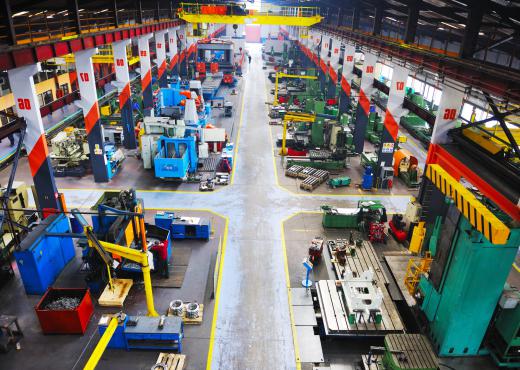Industry standards are procedural and technical rules generally followed by most members of an industry. Compliance with standards is voluntary, to varying degrees; for example, following the standard may be optional, but it may be impossible to sell products not produced in accordance with a standard. Some health and safety codes adopt procedures and use them as basic standards for product safety and quality. A number of organizations set and enforce industry standards worldwide.
Some industry standards are international, reflecting the global nature of the business community. Others may be national, or may span several closely associated countries like the members of the European Union. Standards can range from agreements on plug size and shape to generally accepted manufacturing process. One advantage to standardization is access to interchangeable parts, and a base standard of quality consumers can rely on when they purchase products from a given industry.

Organizations like the American National Standards Institute (ANSI) set standards with input from industry representatives and consumers. Many national organizations have a connection to an international partner, allowing companies to do things like agreeing on film sizes for cameras so people can buy film anywhere in the world. Using standard shapes and sizes for equipment components can be beneficial for the manufacturing community, as well as customers by making it easier to produce parts and products.

People in the repair industry also benefit from industry standards. Knowing what to expect from given products can allow people to diagnose and repair problems much more quickly. They will also have ready access to parts for repair and maintenance, instead of having to order or fabricate parts for a custom fit. People like plumbers and electricians rely heavily on standards, as well as building codes to keep their work consistent. Having standard practices allows people to pick up projects in the middle, or repair projects created by someone else, without having to puzzle out the methods the original worker used.
Companies interested in adhering to industry standards can access information from a standards-setting institution. They can also submit products for inspection and certification if they want to assure consumers their products are made in accordance with the standard. In addition to industry standards, companies may need to meet other requirements, such as Federal Communications Commission (FCC) certification for electronics, ensuring they will not cause interference and other problems. Consumers may notice a number of notices and badges on some products, indicating whether they comply with various standards.
Ever since she began contributing to the site several years ago, Mary has embraced the exciting challenge of being a About Mechanics researcher and writer. Mary has a liberal arts degree from Goddard College and spends her free time reading, cooking, and exploring the great outdoors.

